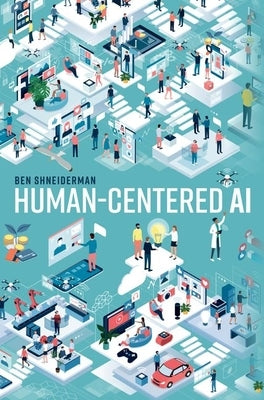Description
A HUMAN-CENTERED APPROACH TO ARTIFICIAL INTELLIGENCE WILL ENSURE HUMAN CONTROL OVER POWERFUL AND HELPFUL FUTURE MOBILE DEVICES AND SERVICES Researchers, developers, business leaders, policy makers, and others are expanding the technology-centered scope of artificial intelligence (AI) to include human-centered AI (HCAI) ways of thinking. This expansion from an algorithm-focused view to embrace a human-centered perspective can shape the future of technology to better serve human needs. The remarkable progress in algorithms for machine and deep learning have opened the doors to new opportunities, and some dark possibilities. However, as many technology companies and thought leaders have said, the goal is not to replace people, but to empower them by making design choices that give humans control over technology. In Human-Centered AI, Professor Ben Shneiderman aims to produce an optimistic, realistic, guide to how artificial intelligence can be used to augment and enhance humans' lives. This project bridges the gap between ethical considerations and practical realities to make successful, reliable systems. Digital cameras, communications services, and navigation apps are just the beginning. Shneiderman shows how future applications will support health and wellness, improve education, accelerate business, and connect people in reliable, safe, and trustworthy ways that respect human values, rights, justice, and dignity.
Author: Ben Shneiderman
Publisher: Oxford University Press
Published: 06/26/2025
Pages: 416
Binding Type: Paperback
Weight: 1.47lbs
Size: 9.14h x 6.27w x 0.68d
ISBN13: 9780198945345
ISBN10: 0198945345
BISAC Categories:
- Computers | Artificial Intelligence | General
- Computers | User Interfaces
- Science | Philosophy & Social Aspects
Author: Ben Shneiderman
Publisher: Oxford University Press
Published: 06/26/2025
Pages: 416
Binding Type: Paperback
Weight: 1.47lbs
Size: 9.14h x 6.27w x 0.68d
ISBN13: 9780198945345
ISBN10: 0198945345
BISAC Categories:
- Computers | Artificial Intelligence | General
- Computers | User Interfaces
- Science | Philosophy & Social Aspects
About the Author
Ben Shneiderman, Emeritus Distinguished University Professor, University of Maryland

